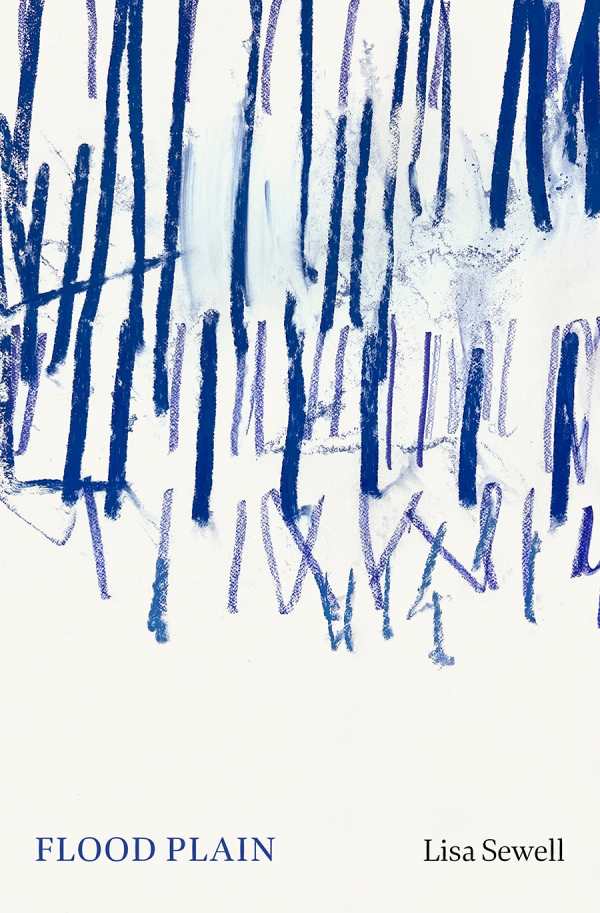Flood Plain
In grief-soaked language, Lisa Sewell’s poetry collection Flood Plain meditates on the parallels of personal, ecological, and social loss, aching for the world with “a gust of triumph beneath / the syntax of regret.”
Open couplets are the main structuring element, with paired lines mirroring the thematic twining of nature and society. Scientific jargon curls up to poetic diction with ease—susurrations and passerines, skimshanders and colitis coexist in this collection. “Dry Spell,” an ars poetica, makes explicit the origin of Sewell’s approach: “I took my form and meter from other animals and the natural world, / which abounds in forms.”
Animals inhabit the lines not only as structural inspiration, but as subjects. Multiple poems are odes to specific species, connected by the thread of memory. These animals, the poems suggest, remember extinction in their bones. The speaker often plays the role of witness, rendering observations with the patience of a naturalist, but this witnessing also extends beyond the natural world.
Cognitive bridges are drawn between ecosystem degradation and other specters of modernity, like settler colonialism and the American prison system. Through juxtaposition and metaphor, these links are shown not to be incidental, but inherent. In “At Glen Canyon National Recreation Area,” dams are built over Indigenous land and crinoid fossils alike, devastating the land both culturally and ecologically. “Chelonia mydas (green sea turtle)” notes Columbus’s encounter with the Caribbean turtles, their numbers so vast that “they covered the sea, closing the gap / between ship and sand, as though // you could stroll across their backs to conquest.”
In this manner, the poems of Flood Plain draw a map of the interconnectedness of all, distilled in a rumination on the extinct golden toad: “Because his screech is melody / and we are all in jeopardy // and all have golden toad songs / semaphoring in our throats.”
Reviewed by
Luke Sutherland
Disclosure: This article is not an endorsement, but a review. The publisher of this book provided free copies of the book to have their book reviewed by a professional reviewer. No fee was paid by the publisher for this review. Foreword Reviews only recommends books that we love. Foreword Magazine, Inc. is disclosing this in accordance with the Federal Trade Commission’s 16 CFR, Part 255.

